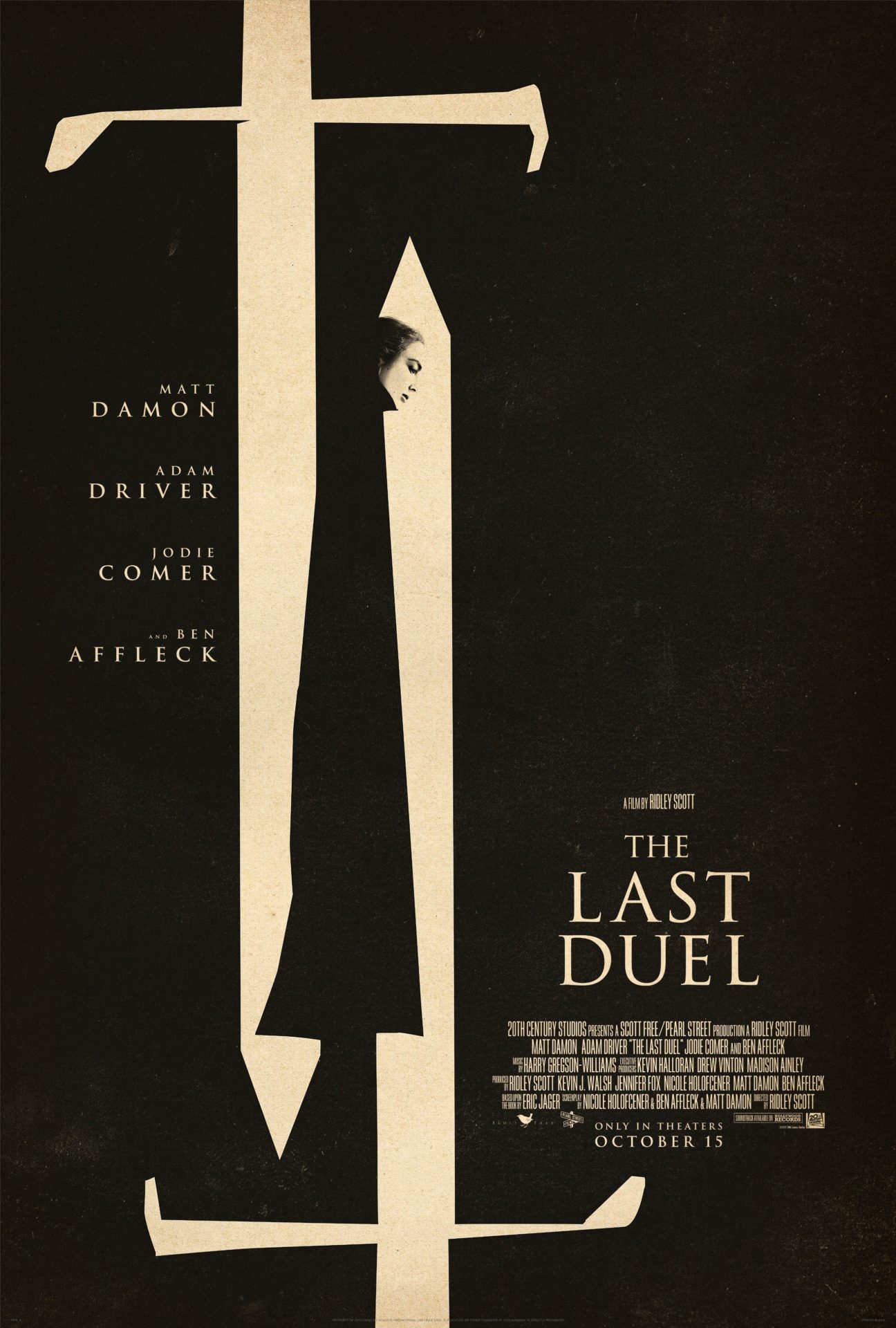
- Starring
- Matt Damon, Adam Driver, Jodie Comer
- Writers
- Nicole Holofcener, Ben Affleck, Matt Damon
- Director
- Ridley Scott
- Rating
- 18A (Canada), R (United States)
- Running Time
- 152 minutes
- Release Date
- October 15th, 2021
Overall Score
Rating Summary
The Last Duel marks a welcomed return of the blockbuster period drama that once heavily populated the early 2000s. No stranger to this genre of filmmaking, director Ridley Scott delivers an expertly crafted narrative conveyed in a unique manner that only bolsters the already massive scale of the historical duel that served as the last judicially sanctioned duel in French history.
What sets this film so far apart from previous epics is its ability to tell a story sprawling over several years through three very specific narratives from its leading characters’ perspectives. This large departure from a traditional narrative structure allows not only gives each lead a major portion of the film, it also allowed to be seen from various angles offering unique interpretations.
Enacting Scott’s vision is an assembled cast that is remarkable in their full commitment to the material, delivering some of the best performances of this year thus far. Damon puts forth a solid showing as Sir Jean de Carrouges, a career knight forced to declare vengeance when his wife accuses another man of raping her. Comer as Carrouges’ wife, Lady Marguerite, easily delivers one of the top performances of her career. She is the perceived focal point of the duel but also serves as the bearer of a much larger message as her plight begins to slip away from her and into the hands of man in order to decide both her and her husband’s fate. The accused is Driver’s Jacques Le Gris who ultimately becomes the film’s antagonist as he not only committed the crime of which Marguerite has accused him of but also is the instrument of several injustices against Carrouges that only contribute to the inevitable clash between the two figures.
Traditionally, these characters would be parsed out during the film’s running time to achieve several thoughtful monologues that help character development and elicit empathy for the accused from the audience. Scott’s decision to tell the story each from the perspective of Carrouges, Le Gris, and Marguerite affords the film time to completely enrapture its audience in each individual story, thus creating indecisiveness and an emotional response far deeper than empathy for the victim. Even more, this narrative choice casts a much wider light on the often insurmountable difficulties of being a female in the 14th century. This not only arises through Comer’s Marguerite but is shown throughout the film from other various female characters who play onlookers to their male counterparts who lead the discussion of the lead character’s injustice. Whether it was through the Queen of France, various handmaidens, or the wife of a prominent French Lord, these unspoken scenes are one of the most telling and most brilliant aspects of The Last Duel as they are completely unassuming and yet leap off of the screen with their internal strife.
Ultimately, The Last Duel marks one of the most surprising films of the year thus far for its ability to subvert a perceived genre that would’ve delivered a serviceable watch in theaters by playing by the traditional rules of a large-scale blockbuster drama. However, through a bold decision to convey its narrative in a non-linear manner, the film elevates itself beyond expectations and contributes to a poignant conversation whose ripple effect is still being felt beyond this mark in history.
still courtesy of 20th Century Studios
Check out my Critics Without Credentials podcast on iTunes and Spotify.
If you liked this, please read our other reviews here and don’t forget to follow us on Twitter or Instagram or like us on Facebook.

Trying my best to get all thoughts about TV and Film out of my head and onto the interweb.

